Tehran University Loses Access To Scientific Databases Due To $1.2mn Debt
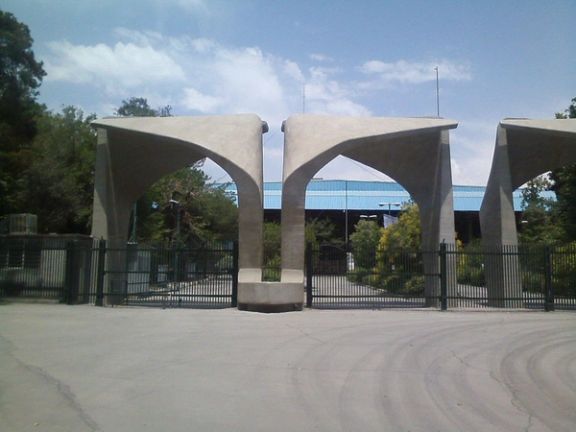
The University of Tehran, the oldest and possibly most prominent Iranian university, has lost its access to databases of scientific articles due to financial problems.

The University of Tehran, the oldest and possibly most prominent Iranian university, has lost its access to databases of scientific articles due to financial problems.
Mehdi Fakour, vice chancellor of research at the university, said Thursday: "Due to the increase in the exchange rate of the dollar in recent months, the total debts of Tehran University have reached 60 billion tomans (600 billion rials or about $1.2 million) since 2018."
He added that subscription fees for several databases in social and behavioral sciences have been paid but the university has not paid its debt to major medical and engineering databases Elsevier and Springer, among the top publishers of peer-reviewed journals in science, humanities and medical fields.
This is not the first time that Iranian universities report such issues. Most Iranian university students suffer months of no access with several short bouts during which they download large numbers of articles and journals to study later.
Earlier in the year, an official of the Iranian Ministry of Science said that a large number of the country's universities have been cut off from access to the world's scientific databases due to the “debts of the universities," noting that sometimes it is impossible to pay the fees because of "sanctions".
Abdossadeh Neisy added that according to the law, contracts between scientific bases and universities are signed in dollars. "Since university budgets in Iran are paid in rials, universities cannot provide the needed budgets,” he said.

Germany has charged a German-Iranian for a regime-backed attempted arson plot on a synagogue in Dortmund.
The federal prosecutor's office announced the verdict against Babak J. on Thursday, saying he was instructed by an intermediary "acting on behalf of unknown Iranian state agencies" in November to carry out the attack.
Following the order, the accused is said to have sought to convince an acquaintance to set fire to the synagogue using a Molotov cocktail.Apparently, the acquaintance had refused.
Later, Babak J.'s handler named another synagogue as a target in the city of Bochum rather than Dortmund, prosecutors said, adding that "the accused refrained from attacking the well-monitored synagogue in Bochum itself for fear of discovery".Instead, he tried to set fire to a school building adjacent to the synagogue.
It is one of a series of foiled attacks in recent months on Jewish sites at the behest of the regime, In March, Israeli intelligence foiled a plot to target a Jewish cultural center in Greece.
Also in March, the Washington Post cited Western intelligence officials as saying that Ramin Yektaparast was the main suspect in organizing an attack in November on a Jewish cultural center in the German city of Essen, allegedly at the behest of Iran’s IRGC.
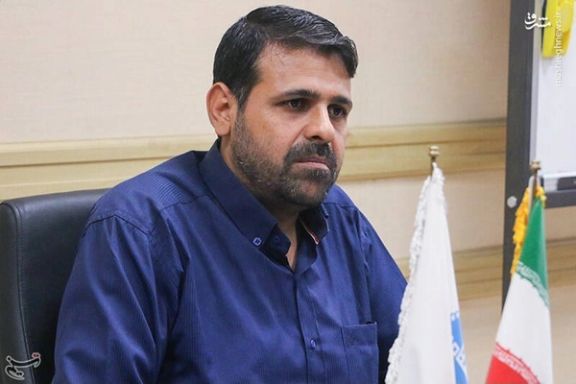
An Iranian lawmaker claims Britain and France do not dare to designate IRGC as a terrorist group because they know their forces in the region will be attacked if they do so.
Ahmad Naderi, a member of the Presiding Committee of the parliament representing Tehran, made the threat in a tweet on Friday in reaction to the Swedish parliament voting in favor of designating the Islamic Revolutionary Guard Corps (IRGC).
The Swedish parliament's decision to list the IRGC as a terrorist group is only “a show" that has no real value, he said, adding that "formerly colonialist countries like France and England, which are the leaders in Europe, do not have the courage to do this because they know that we will attack their forces in the region”.
Without further details, he added that plans to retaliate against Sweden for its recent designation on Wednesday still stands.
It followed the execution this week of Swedish-Iranian Habib Chaab (Asyud) which saw Sweden's Ministry of Foreign Affairs summon Iran's chargé d'affaires in protest of the execution, one of hundreds since the start of the year.
Iran's relations with Sweden have been strained since July when a Swedish court sentenced a former Iranian jailor, Hamid Nouri, to life imprisonment over executions of political prisoners in 1988.
The US has already designated the IRGC which for decades has conducted operations abroad including maritime hijackings, political assassinations and hostage taking. Other nations such as the UK are hesitant in hopes to resume dialogue on Iran's nuclear program.
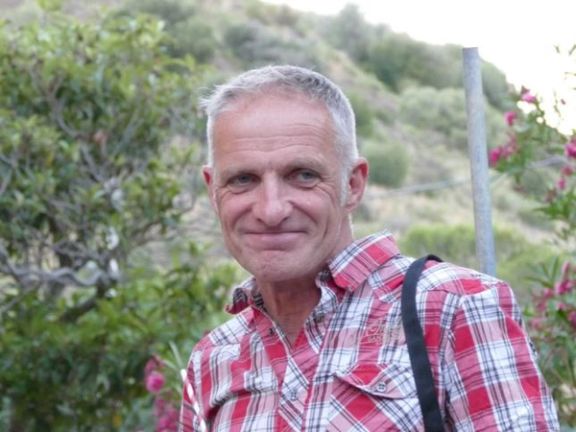
Iran has released Franco-Irish citizen Bernard Phelan who was earlier sentenced to 6.5 years in prison for "providing information to another country."
The twitter account of Iran’s embassy in Dublin announced the release on Thursday, saying, “Constructive diplomatic engagement between Iran and Ireland has resulted in pardoning and releasing of the Irish citizen on consular and humanitarian grounds.”
Phelan was arrested in October during anti-regime protests that have swept the country following the death of Mahsa Amini in police custody in September. He has allegedly taken photographs of protests and a mosque that had been burned.
Bernard Phelan, 64, who is a travel consultant has been accused by the Islamic Republic of "propaganda against the establishment" and "photographing police and security officers". He was imprisoned in Vakil Abad prison in Mashhad northeast of Iran.
He spent several weeks on a hunger strike and his health deteriorated, his sister said in March, adding his brother was at risk of dying in custody.
Given that Phelan had entered Iran with a French passport, his case was pursued by the French Embassy in Tehran.
Iran has been accused of wrongfully detaining at least a dozen foreign and dual nationals on trumped up charges, effectively as hostages to extract concessions from Western governments. However the full extent of these prisoners is unknown. Most are held on spurious spying charges.
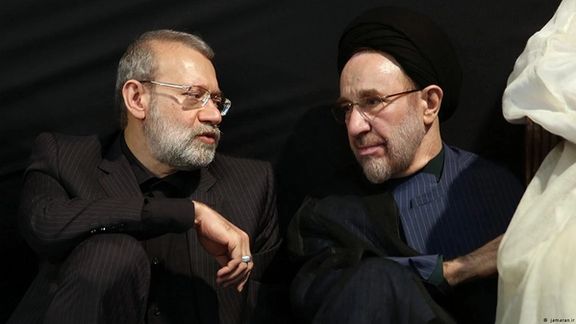
Former President Mohammad Khatami says Iran's Islamic revolution has deviated from its path and ex-parliament Speaker Ali Larijani argues for major policy changes.
Khatami has reiterated in a meeting with teachers that Islamic Republic's policies are self-destructive and suggested that the government should embark on reforms. Khatami pointed out that governance in Iran needs to be reformed if the Islamic Republic is to survive.
He further suggested that all social groups in Iran should follow the non-violent style of Iranian teachers' protests. He further said that the government should represent the people and the people should be able to replace the government. This can be achieved though free and fair elections, adding that in an ideal system everybody should have equal right to power, wealth and status.
“A regime change in Iran is impossible, but the government is undermining itself. I suggest it reform itself instead,” the mild-mannered reformist politician said.
Khatami who was president from 1997-2005 tried to boost freedom of speech in his first time but he was over-ruled by conservatives supported by Supreme Leader Ali Khamenei, who closed dozens of newspapers and cracked down on dissidents.
Meanwhile, former Majles Speaker Ali Larijani in a sarcastic letter denying an IRGC-linked Tasnim news agency report that the he was preparing to run for parliament in early 2024, said: "The country needs a change in policy." He also accused Iranian hardliners of purging the political landscape of moderate voices.
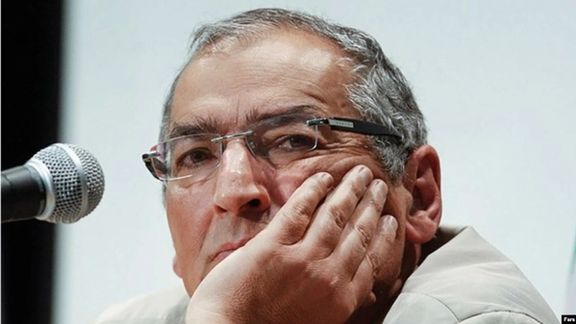
Reformist commentator Sadeq Zibakalam in an article interpreted Larijani's statement as meaning that "existing policies cannot stand any longer."
He said Larijani has used the word "purification" rather than purging in his letter as a political detour to evade a harsh response by the government. However, he meant that the regime can no longer continue the policies it has been following during the past 44 years. What Larijani wants, said Zibakalam, is "a revision of Iran's political structure."
Zibakalam added: "In a nutshell, the government needs to ask itself whether the country's main problem is political or economic or social. What has led to the sulking of the post revolution generations with the government? Why there is so much despair and disillusionment in the society? In fact, Laijani has used the word purging or purification to make sure that he will not be accused of sympathy with protesters, opposition or counter-revolutionaries."
Zibakalam also referred to the term "artificial [political] competition" in Larijani's letter where he said: "It is unlikely that you can create artificial competition ahead of the election [by spreading disinformation about the participation of moderate political figures]."
Zibakalam said: "In fact, the protests last year shook many state officials. Larijani and individuals like him have realized that wrong policies of the government have pushed the country into a dead-end. What he is saying is that if the government continues those policies, even political figures such as him will find the election meaningless. And what is more important is that apart from the elections, the country is suffering from this chaos."
Zibakalam explained: "Other moderate and realist political figures and groups should also come to the conclusion that an election which is not free and fair would be meaningless. Even some conservatives should understand that. If nothing changes, only the ultraconservative Paydari Party and radical groups will take the 2024 election seriously."
The outspoken commentator, who has somehow evaded arrest so far, said that with the Raisi administration's economic failure, more moderates and moderate conservatives such as Larijani will demand a change in policies.
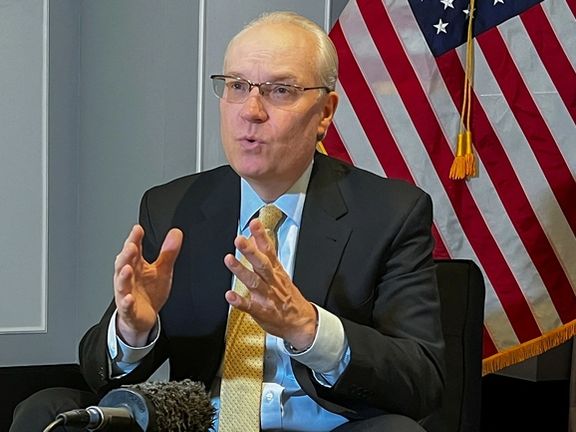
Despite the deal to reestablish diplomatic ties with Saudi Arabia, Iran continues to supply weapons and drugs to fuel the conflict in Yemen, a US diplomat said.
"The Iranians have continued to smuggle weaponry and narcotics toward this conflict, and we are very concerned that this would continue despite the benefits that would come from a Saudi-Iran deal. So, I think that is a space we have to watch," US envoy for Yemen Timothy Lenderking said in a briefing.
The US, British and French navies have captured several shipments of weapons headed from Iran to Yemen in recent months. In February the US military announced the seizure of 3,000 assault rifles, 578,000 rounds of ammunition and 23 anti-tank guided missiles onboard a vessel in international waters.
“Despite the fact that we welcomed an agreement between the Saudis and the Iranians, I remain concerned about Iran’s role,” he said, contending that Tehran has trained Houthi fighters and equipped them “to fight and attack Saudi Arabia.”
Tehran denies arming the Houthis, who seized Yemen's capital Sanaa in 2014 after ousting the government and extending their control over large areas of the country.
The Saudi-Iran deal alone will not end the conflict, which can only be settled through negotiations between the Yemeni sides, Lenderking said.
Iran has been accused of violating UN resolutions by providing drones and missiles to the Houthis to conduct cross-border attacks on Saudi Arabia, but no such attacks have been reported in the last year.
Millions of people are in need of international assistance because of the war, which has killed tens of thousands of people.